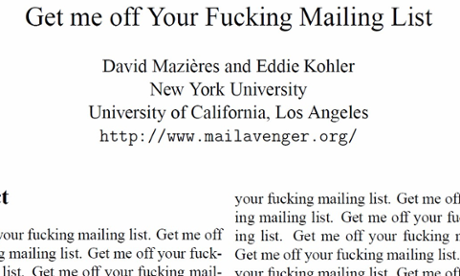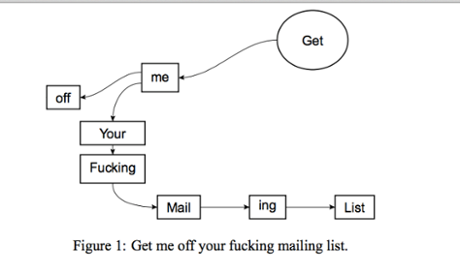Gary Younge in The FT
Every now and then much of Britain discovers racism in much the same way that teenagers discover sex. The general awareness that it is out there collides with the urgent desire to find out where. People talk about it endlessly and carelessly, unsure of what to say or think or whether they are doing it right. They have lots of questions but, even if they did know whom to ask, they would be too crippled by embarrassment to reveal their ignorance. Everyone has an opinion but only a few have any experience. The interest never goes away, though its intensity wanes as they explore other things.
The trouble is not everyone gets to move on. Black people, and other minorities, do not have the luxury of a passing interest in racism. It is their lived reality. A YouGov poll of black, Asian and minority ethnic Britons surveyed over the past two weeks reveals the extent to which prejudice and discrimination is embedded in society.
It found that two-thirds of black Britons have had a racial slur directly used against them or had people make assumptions about their behaviour based on their race. Three-quarters have been asked where they’re “really from”. (When I once told a man I was born in Hitchin, he asked, “Well where were you from before then?”).
More than half say their career development has been affected because of their race, or that they have had people make assumptions about their skills based on their race; 70 per cent believe the Metropolitan police is institutionally racist; and the proportion of black people who have been racially abused in the workplace (half) is almost the same proportion as those who have been abused in the street.
Little wonder then that two-thirds of black people polled think there is still a “great deal” of racism nowadays. This is not a substantial difference from the three-quarters who say they think there was a great deal around 30 years ago.
As the public gaze shifts from the Black Lives Matter protests, these experiences will endure. They may be tempered by greater sensitivity; but heightened consciousness alone will not fix what ails us. The roots are too deep, the institutions too inflexible, the opportunism too prevalent and the cynicism too ingrained to trust the changes we need to goodwill and greater understanding alone.
I applaud the proliferation of reading lists around issues of race and the spike in sales for the work of black authors — people could and should be better informed. But we did not read our way into this and we won’t read our way out. The racism we are dealing with isn’t a question of a few bad apples but a contaminated barrel. It’s a systemic problem and will require a systemic solution.
This is a crucial moment. The nature of the protests thus far has been primarily symbolic — targeting statues and embassies, taking a knee and raising a fist. That ought not to be dismissed. Symbols should not be disregarded as insubstantial. They denote social value and signify intent. But they should not be mistaken for substance either, lest this moment descend into a noxious cocktail of posturing and piety.
Concrete demands do exist. All Black Lives UK, for example, has called for the scrapping of section 60, which gives the police the right to stop and search, and the abolition of the Met police’s gangs’ matrix, an intelligence tool that targets suspected gang members. It also wants measures to address health disparities, particularly relating to black women and mental health, and the implementation of reviews that already exist, including the Lammy Review (on racial disparities in the criminal justice system), the Timpson Review (on school exclusions), and the McGregor-Smith review (race in the workplace).
But the only demand that has cut through has been the push for the education system to more accurately reflect our colonial past and diversity. The poll finds this has the support of 81 per cent of black people — the same percentage that approved of removing a statue of the slave trader Edward Colston in Bristol. (Far from wishing to “photo shop” our cultural landscape, as the prime minister claims, they want their kids to learn more about it. They just don’t want the villains put on a pedestal.)
This is great, as far as it goes but, given the size of the constituency that has been galvanised in the past few weeks and the awareness that’s been raised, it doesn’t go nearly far enough.
The solemn declarations of intent and solidarity that flooded from corporations and governments will leave us drowned in a sea of racial-sensitivity training unless they are followed up by the kind of thoroughgoing change and investment that seeks to genuinely tackle inequalities in everything from housing and education to recruitment, retention and promotion. That costs money and takes guts; it means challenging power and redistributing resources; it requires reckoning with the past and taking on vested interests.
“When people call for diversity and link it to justice and equality, that's fine,” the black radical Angela Davis once told me. “But there’s a model of diversity as the difference that makes no difference, the change that brings about no change.”
The governing body of Oxford university’s Oriel College did not resolve to take down its statue of Cecil Rhodes because they suddenly realised that he was a colonial bigot. They did so because it had become more of a liability to keep it up than to take it down. Similarly, it was not new information about police killings that prompted the National Football League in America to change its position on taking a knee. They did that because the pressure was too great to resist. We have to keep that pressure up, albeit in different ways.
“If there is no struggle there is no progress,” argued the American abolitionist, Frederick Douglass. “Power concedes nothing without a demand. It never did and it never will.”
'People will forgive you for being wrong, but they will never forgive you for being right - especially if events prove you right while proving them wrong.' Thomas Sowell
Search This Blog
Showing posts with label list. Show all posts
Showing posts with label list. Show all posts
Saturday, 27 June 2020
Tuesday, 25 November 2014
Journal accepts bogus paper requesting removal from mailing list
Australian computer scientist Dr Peter Vamplew submitted emphatically titled paper to ‘predatory’ journal and ‘nearly fell off chair’ when it was accepted

An open-access “predatory” academic journal has accepted a bogus research paper submitted by an Australian computer scientist titled Get Me Off Your Fucking Mailing List.
The paper, originally written by American researchers David Mazières and Eddie Kohle in 2005, consisted of the title’s seven words repeated over and over again. It also featured helpful diagrams.

Dr Peter Vamplew, a lecturer and researcher in computer science at Federation University in Victoria, submitted the paper to the International Journal of Advanced Computer Technology earlier this year after receiving dozens of unsolicited emails from the publication and other journals of dubious repute.
“There’s been this move to open-access publishing which has often meant essentially a user-pays system,” Vamplew said. “So you pay to have the paper published and it’s available to the public for free.”
An academic librarian at the University of Colorado, Jeffrey Beall, told Nature magazine last year that up to 10% of open-access journals were exploiting the model by charging a fee to proofread, peer-review and edit a research paper without actually carrying out the work.
“They’re predatory journals, preying on young, inexperienced researchers who unwittingly don’t realise they’re of questionable quality,” Vamplew said.
Vamplew said he submitted the paper expecting the journal’s editors would “read it, ignore it, and at best take me off their mailing list”.
Weeks later he received good news: “It was accepted for publication. I pretty much fell off my chair.”
In line with the highest academic standards, Get Me Off Your Fucking Mailing List had been subjected to rigorous, anonymous peer review.
“They told me to add some more recent references and do a bit of reformatting,” he said.
“But otherwise they said its suitability for the journal was excellent.”
Vamplew was required to pay a $150 fee to have the paper published, but he declined.
The scheme has earned Vamplew some online recognition, but sadly his main aim remains unfulfilled.
“They still haven’t taken me off their mailing list,” he said.
The editors of the journal have been contacted for comment.
Sunday, 12 May 2013
FTSE 100's use of tax havens – get the full list
Research has found that the UK's biggest public companies have more than 8,000 subsidiaries or joint ventures in tax havens – but which businesses have the most?
• Get the data
• More data journalism and data visualisations from the Guardian
• Get the data
• More data journalism and data visualisations from the Guardian

Tortola, the capital of the British Virgin Islands, which in turn is the global capital of offshore finance – how many UK companies have subsidiaries there? Photograph: Neil Rabinowitz/ Neil Rabinowitz/CORBIS
Which major UK corporations keep subsidiaries in tax havens? The short answer, according to updated research by development charity ActionAid, appears to be almost all of them.
The research found 98 of the 100 companies in the FTSE 100 – the hundred biggest publicly listed UK corporations – had subsidiaries, associates, or joint ventures in countries defined by the charity as tax havens.
These included well-known offshore tax havens, such as the British Virgin Islands and Cayman Islands, as well as larger "onshore" countries which have been criticised for low taxes, lax regulatory regimes, or stringent corporate secrecy rules. The charity has provided a full rationale for its list of havens here.
The figures were collated through a months-long process began in September 2012 (and using the FTSE 100's composition at that date), using official corporate documentation.
In their extensive annual reports, many companies list a small number of "principal" subsidiaries – but buried in further filings, or in documents submitted to US authorities, lie dozens or hundreds more, scattered across the world. However, even once the existence of the offshore subsidiaries is known, no further information can be obtained, due to strict secrecy rules in most offshore jurisdictions.
Of course, a company's presence in a given jurisdiction doesn't itself demonstrate tax avoidance in any country, and there is no suggestion any of the listed companies have any offshore structures not permitted under UK law – and many of the FTSE 100 companies are keen to note they are major UK taxpayers.
However, given the renewed focus on offshore secrecy, and pressure on tax havens for greater transparency and accountability, an insight into the extent of the jurisdictions' usage is telling.
The top ten companies by offshore usage are listed below (note WPP's list is based on a 2011 SEC filing, and as in more recent submissions the company has taken advantage of an exemption allowing it to list only a small number of "principal" subsidiaries)
The research also shows which sectors make the most use of tax havens. Four out of five overseas companies operated by real estate companies are located in tax havens, compared with about one in three travel and leisure businesses.
We've included a summary table showing the total number of subsidiaries each FTSE 100 company has in tax havens, and how many of those are in countries with ties to the UK (Crown dependencies like Jersey and Guernsey, or British overseas territories like the BVI) – and the full country-by-country data is in the linked spreadsheet at the foot of this post.
Do you spot anything of interest in this data – or have you got thoughts on visualising it? Let us know what you make in the comments, or via Twitter @GuardianData
Data summary
Company
|
In British Overseas Territories or Crown Dependencies
|
Total
| |
|---|---|---|---|
FTSE 100 composition as of 1 September 2012. Ashmore Group Plc has now left (replaced with Melrose Group Plc), data taken from available Companies House filings at that date. Information has been drawn from the latest available annual return submitted by each group head company to the UK company registry, Companies House or other available public records.
Source: ActionAid
| |||
Subscribe to:
Posts (Atom)